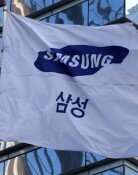Report: South Koreas Mobile Telecom Charges Lowest Among OECD Members
Report: South Koreas Mobile Telecom Charges Lowest Among OECD Members
Posted June. 01, 2005 06:48,
South Koreas Mobile Phone Calling Charges Are Lowest Among OECD (Organization for Economic Cooperation and Development) Members-
A report on a comparison of mobile phone calling charges among OECD members conducted by SK Telecom, which was obtained by Dong-A Ilbo on May 31, shows that the mobile phone calling charges in South Korea are considerably lower than the average of those of OECD members. This report, drawn up by the SK Economic Research Institute, was submitted to the National Assembly.
This report chose a comparison method of optimal calling charges in order to compare each countrys calling charges against each other. This method compares one countrys calling charges with anothers by setting a monthly calling time on the assumption that users chose the cheapest calling charge system from various calling charge systems.
According to this method, South Koreas mobile phone calling charges, if a South Korean uses his or her mobile phone for 200 minutes per month, stand at 30,592 won per month on average. The calling charges of South Korea ranked ninth-cheapest of that of 30 countries. If users spoke for 300 minutes per month, the charge averaged 36,825 won per month, and if users spoke for 400 minutes per month, the charges averaged 42,945 won per month, which ranked sixth and third, respectively.
Given the exchange rate and actual buying power, the short message service (SMS) charge of South Korea was just 30 percent of the average cost of the service for all OECD members. While South Koreas charges are 30 won per SMS, the average charge in OECD member countries is 97 won.
Controversy over the Report-
A total of 25 civic groups, including the YMCA, asking for reduction of additional service charges, staged a protest with a single person in front of the SK Telecom headquarters building in Euljiro, Jung-gu, Seoul on May 18.
With the National Assembly being interested about this issue, it is scheduled to hold a public hearing on additional mobile telecommunications service charges in the National Assembly on June 10.
The mobile telecommunication sector refuted the publics opinion by saying, Taking into consideration that South Koreas charges are relatively cheaper than other foreign countries, it is difficult to understand the controversy surrounding the specific additional service charges. The reason behind this report being made public was to back up the mobile telecommunication sectors position.
Some pointed out that this report might be interpreted differently. This is not because South Koreas mobile telecommunications charges are absolutely cheaper than other countries considering the cost price, but because they are relatively cheaper than other countries.
The fact that if one uses ones mobile phone for 100 minutes per month, the calling charge of South Korea ranked 10th-cheapest out of that of 30 countries means that there are nine countries whose calling charges are cheaper than South Koreas over the same period of time. The calling charge of developed countries such as Denmark, Finland, Iceland, Sweden, and Luxembourg are cheaper than that of South Korea.
Background And Prospects-
The controversy over the reduction of mobile telecommunications charges was originally stirred up because the proportion of telecommunications charges in household expenditures has been getting larger.
Regarding the reason behind this situation, the mobile telecommunications sector has insisted that it is not because South Koreas calling charges are expensive, but because South Koreans use their mobile phones for a long time. For SK Telecom in South Korea, the average monthly calling time used by its subscriber is 191 minutes, which is longer than the United Kingdom (140 minutes), France (143 minutes), Japan (168 minutes), and Germany (76 minutes).
Jeon Eung-hwi, a policy committee member of the Green Consumer Network in Korea, said, We dont want to be involved in the claim that mobile telecommunications charges are cheap, adding, We are raising an objection over the mobile telecommunications companies policy that they are planning to separate voice calling services and additional services on the assessment that they can no longer make a profit from voice calling services alone.
Is the worlds highest level of mobile telecommunications charges due to over-consumption or excessive charges? It is forecasted that the mobile telecommunications sector will face a hot June answering this question.
Suk-MinHong Sang HoonKim smhong@donga.com sanhkim@donga.com







